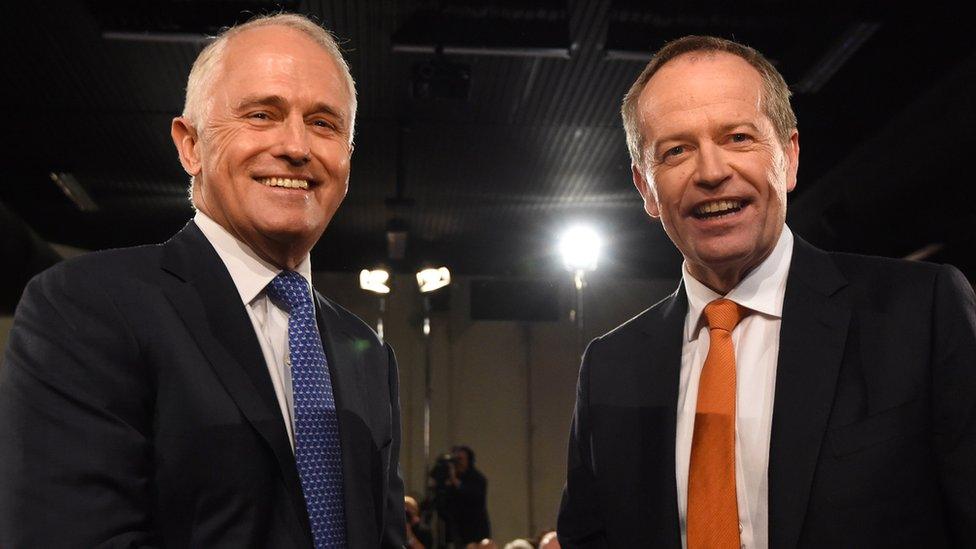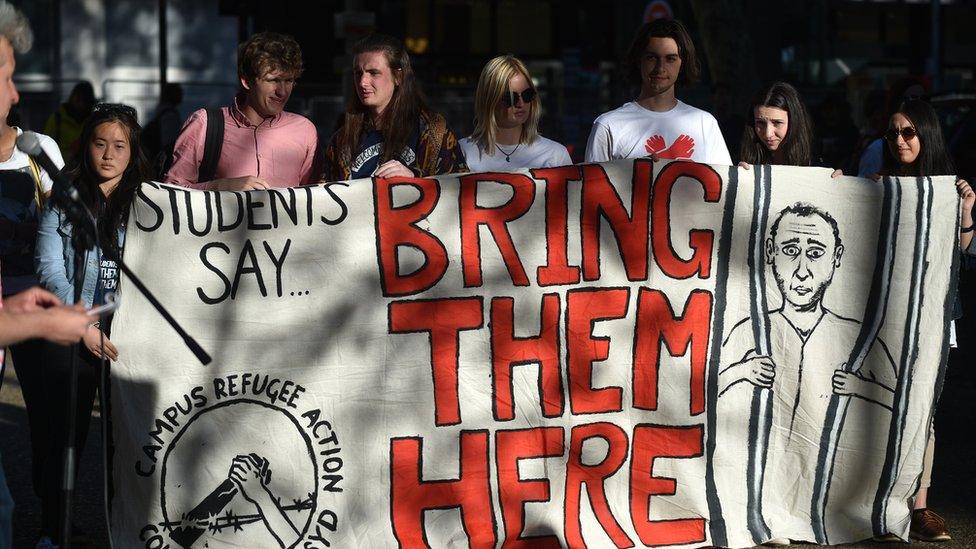Australians losing faith with mainstream politics, study finds
- Published

Malcolm Turnbull and Bill Shorten both received low popularity ratings
Australian politics is starting to experience the kind of dissatisfaction seen in the United States and Britain, a major study has found.
The Australian Electoral Study found Australian voters' faith in democracy has plunged to its lowest point since the 1970s.
It also showed record low interest in the 2016 federal election.
But dramatic change is less likely in Australia due to factors including compulsory voting, the authors said.
Revealing numbers
The survey, conducted by the Australian National University, based its research on interviews with 2,818 people in the three months after Australia's federal poll in July.
Lead researcher Professor Ian McAllister said the results were a wake-up call for Australia's political establishment.
"They're showing something stirring within the electorate, very similar to what you've seen in the United States and Britain," he told the BBC.
"There is a popular disapproval or reaction against career politicians and everything they stand for."
Leaders unpopular
Prof McAllister said he was surprised by the rapid acceleration of disenchantment, with current politicians among the least popular on record.
Opposition Leader Bill Shorten received more negative evaluations than any major leader since 1993, drawing a popularity rating of 4.22 out of 10.
Prime Minister Malcolm Turnbull was only marginally higher, at 4.94.
Other findings in the wide-ranging survey included:
Health, economic management, education and taxation remained the major areas of concern for voters
Australia's offshore processing policy had 56% support, although 40% agreed with resettling asylum seekers in the country
A majority supported same-sex marriage (70%) and euthanasia (77%)
Australia's differences
Prof McAllister said Australia differed from the US and Britain in key ways, most notably by having frequent elections and compulsory voting.
Conducting federal polls every three years and state polls every four years meant Australians had a say in their democracy about once every 18 months, he said.

Despite recent protests, the study found 56% supported Australia's asylum policy
"That means people are a bit more attuned to political parties and conventional politics, so they're less likely to be rebellious," he said.
"You don't really get that level of electoral involvement anywhere else in the world."
But he said concerns over "good government" had featured constantly in studies of Australian voters since 2010.
"I think if it's not addressed in the next three to five years there'll be much more significant troubles," he said.